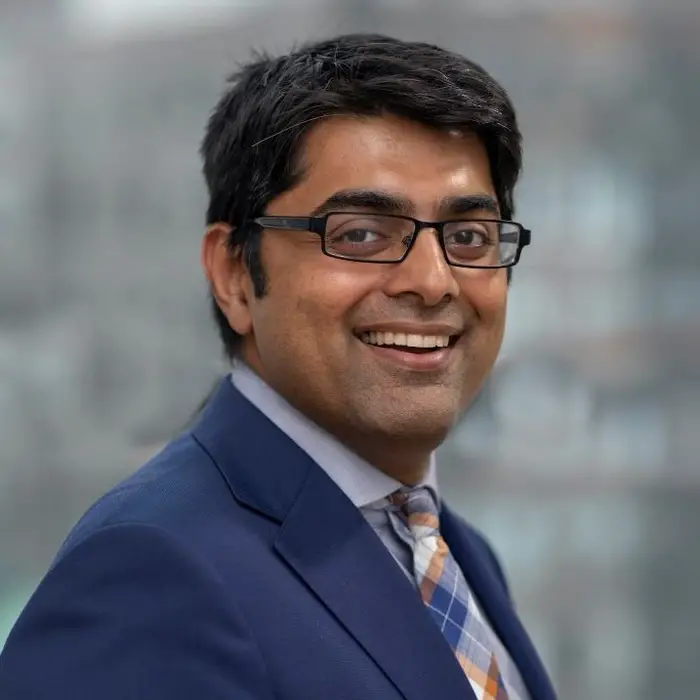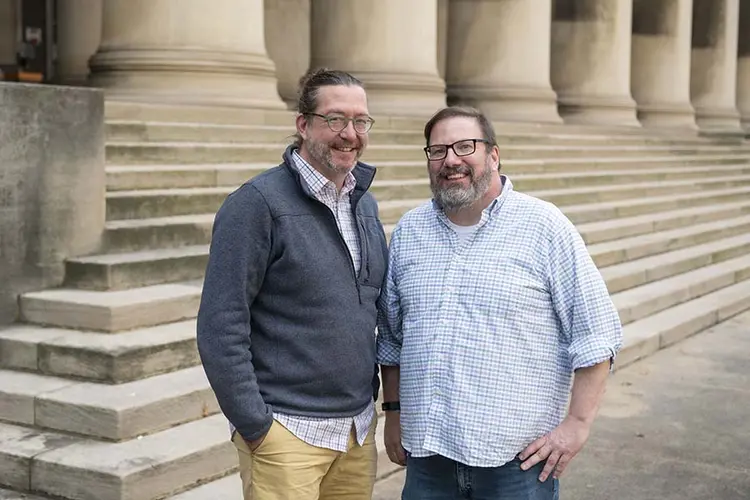Kumar Garg on the Future of Learning Engineering
Media Inquiries
Kumar Garg, vice president of partnerships at Schmidt Futures(opens in new window), a philanthropic initiative founded by Eric and Wendy Schmidt, will present his 2022 Simon Initiative Distinguished Lecture(opens in new window), "Shaping the Field of Learning Engineering," at an in-person-only event at 5 p.m. on Nov. 7, 2022 in Carnegie Mellon University's Rangos Ballroom(opens in new window).
In the following Q&A, Garg explained why the field of learning engineering is at a crucial juncture. This interview has been edited and condensed.
Q: What got you interested in learning engineering?
A: What strikes me as powerful is the idea that you can instrument the learning process to improve the way education is delivered to the student while providing feedback to the course designer, teacher and the learning scientist. At any given moment, this model allows us to operate at all four of those levels by using data and structured experimentation in a dynamic learning environment.
Q: How are you using learning engineering at Schmidt Futures?
A: We created a learning engineering program(opens in new window) in early 2019, inspired by the work that came out of CMU's Open Learning Initiative(opens in new window). In our work at Schmidt Futures, we have specifically focused on the role that advances in computer science can play in accelerating this emerging field. We are exploring the ways that large amounts of data, digital platforms and advances in machine learning can help us instrument learning environments.
Q: Why computer science?
A: Computer science is having a transformative impact across the sciences, like materials science or computational biology. CMU is the home of these integrated efforts in many instances. But I still find that in education, the number of people who are taking advances in computer science and applying them there is still quite small — there is great potential to have a larger impact.
Q: How could that change?
A: We want the research community and funders like the National Science Foundation, the Institute of Education Sciences and the Department of Education to take learning engineering more seriously. These methods could accelerate the research enterprise overall.
I've been excited about the field for 15 years, but I have this sort of fierce urgency now that the field has an opportunity to meaningfully contribute to education and improve student outcomes. We should be doing the work to make investments across the private and public side, but also build the infrastructure so that more of this research and application can happen.
Q: What do you mean by infrastructure?
A: One of the big challenges in learning science research is that it is extremely expensive and difficult to design and run studies. Imagine how expensive and difficult it would be if astronomy involved building the telescope, running the experiment and then analyzing results. Modern day astronomy has large instruments that collect the data, so it's the researcher's job to develop good questions and then analyze the data. In education, because we expect each individual researcher to do the beginning and end of every study — recruitment and design — most resources get spent on just building the study conditions. We should be building ongoing infrastructure across the education landscape to conduct studies more quickly, at a larger scale and for a variety of contexts.
Q: What kinds of projects are you excited about?
A: We are living in an age where advancements in machine learning can have a significant impact on what truly matters in education. For example — early reading. We know that if teachers catch reading problems early, early interventions can have a huge impact on keeping students on grade level, reading and succeeding. If you don't catch these problems early, you have to do a lot more later on, and it can be quite problematic. It's hard to give reading exams, so school districts will often give them one or two times a year. But as the core technology of speech recognition improves, imagine a program that could help catch reading impairments when students read into a phone. It could be a diagnostic test that would let teachers know if students might benefit from a full reading exam or some support.
Advances in core technology like this can open avenues for applications in education. But we need a set of practitioners who are aware of the deep problems in education.
Q: What kinds of deep problems?
A: We're coming out of the COVID-19 pandemic with a huge need. We've had two decades of math progress eliminated. There's so much we didn't know — in 2020 we didn't even know how many students were at home without a device, functionally not doing any learning. We also had data from a survey that was two years old. I think now that we've lived through the pandemic, that's not acceptable. We need an overall upgrade to our infrastructure and the way we do research.
Q: Why are you excited to come to CMU?
A: Learning engineering is a powerful idea and there is a lot of work that CMU has done to start to build it. I'm looking forward to engaging with students, faculty and others on the actions we can collectively take to build this field. I want to ask:
- What are pathways to help students become learning engineers out in the world?
- Are there steps we should take to build the next set of organizations in this area?
- Are there policy roles we can create to ensure that education research is taken as seriously as health and energy?
I'm curious for the community's ideas on what we can collectively work on together, and I think it couldn't come at a better time.
Kumar Garg
University Lecture Series
The University Lecture Series features a diverse range of lectures and performances by artists, scholars, and experts invited by Carnegie Mellon faculty, students, and staff.


